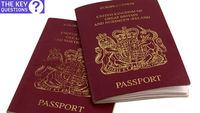What’s happening over the EU referendum? – key questions
David Cameron dramatically raises the stakes by publishing a draft EU referendum bill. Why is he doing this now and what does he hope to achieve?

When the prime minister announced in January that he would hold an in/out referendum on EU membership if the Conservatives won the 2015 election, he hoped his MPs would rally round.
But many of them want more than this, particularly after Ukip’s strong showing in this month’s local elections.
Why is the Conservative party publishing a draft bill now?
The party leadership wants to placate Tory Euro-sceptics who are poised to vote for an amendment to the Queen’s speech tomorrow because it does not include legislation on the in/out referendum.
For them, Mr Cameron must do more than pledge to hold a referendum by the end of 2017, he must also enshrine this in legislation on the basis that it is more likely to happen if the current parliament votes for it.
Their fear is that on European matters, party leaders are inclined to make pledges that are not subsequently honoured.
Of course there is no reason why a future Labour or coalition government should not simply repeal the referendum legislation.
But although Labour currently opposes a referendum, it will not find it easy to resist pressure for one in the months ahead.
Ed Miliband will be mulling over the question: if David Cameron is promising to give the voters a chance to have their say on Europe after the next election, wouldn’t we pay a price at the ballot box if we stand in their way?
What is likely to happen to the draft bill?
Mr Cameron hopes one of his backbenchers will table it as a private member’s bill.
It is difficult for him to draw up a government bill because the coalition is made up of Liberal Democrats who are overwhelmingly pro-European.
On Thursday, a private member’s bill ballot will reveal which MPs have been chosen to table a bill in the Commons.
But it could not become law without a Commons majority, which Mr Cameron could not hope to achieve as long as Labour and the Liberal Democrats remain opposed.
Will Conservative MPs still vote for an amendment to the Queen’s speech?
It looks like it. The amendment, tabled by Euro-sceptics John Baron and Peter Bone, has been signed by 78 MPs, most of them Conservatives.
Downing Street is allowing Tory backbenchers and ministerial aides to support the amendment and ministers to abstain.
Is the government’s legislative programme in jeapordy?
No, most MPs will not vote for the amendment.
Has the draft bill placated Tory MPs?
Not exactly. John Baron told the BBC Today programme that while the draft bill option was a “step in the right direction”, it was a “second-best offer” and he would continue to argue for support for his amendment.
Peter Bone told the programme that if the amendment won a majority, Mr Cameron could approach Liberal Democrat leader Nick Clegg and lobby him to back a government bill.
But Douglas Carswell said he was satisfied with what the prime minister was proposing.
The word Eurosceptic seems to have made a comeback. Why?
Euro-sceptic is a word that was used on an almost daily basis during John Major’s premiership (1990-97) as he steered the Maastricht bill through the Commons.
He faced determined opposition from many of his backbenchers, along with Euro-sceptic cabinet ministers he famously labelled b*******.
The word fell into disuse during the Labour years, but the change in government in 2010 led to a resurrection.
Where does David Cameron stand?
He describes himself as a Euro-sceptic, but believes he can negotiate a better deal for Britain from the EU in the years ahead which he would support in an in/out referendum.
The irony is that the Conservative leader said in his first party conference speech in 2006 that the Tories had alienated voters by “banging on” about Europe.
Why is David Cameron ‘banging on’ about Europe?
John Major won a small majority in 1992 and found it extremely difficult to keep his party together over Europe.
Mr Cameron failed to win a majority in 2010 and cannot afford to ignore the Euro-sceptics in his party, who have come to the fore recently in the shape of cabinet ministers Michael Gove and Philip Hammond and grandees Nigel Lawson and Michael Portillo.
If they are “banging on” about Europe, he has little choice but to follow suit. The problem is that he is in coalition with a Euro-phile party.
What about Ukip?
Mr Cameron did not mince his words when he was asked about Ukip in a 2006 LBC radio interview, saying the party was full of “fruitcakes, loonies and closet racists”.
Now he is under pressure from Nigel Farage’s party, which won almost a quarter of the vote in the local elections, much of this from traditional Tory supporters.
Asked then if he stood by his “fruitcakes” remark, he replied tellingly that “it is no good insulting a political party that people have chosen to vote for”.
The change in tone was significant. Mr Cameron knows he faces another stern test in the 2014 European elections.
What about public opinion?
YouGov polls consistently show that a majority of people would like to withdraw from the EU.
In that sense, the Euro-scepticism of Ukip and many Conservatives is in tune with the popular mood.
The challenges facing the prime minister are considerable. First, he must achieve an EU renegotiation that satisfies his own party. Second, he has to win a majority at the next election. Third, he has to win a referendum he hopes will keep Britain in the EU. No pressure then.
Could Britain end up leaving the EU? The key questions